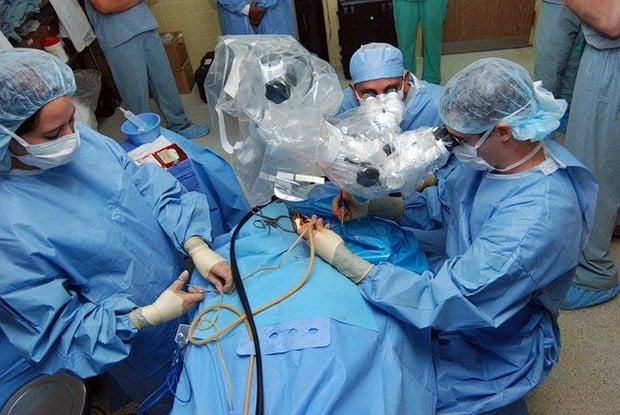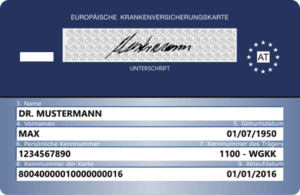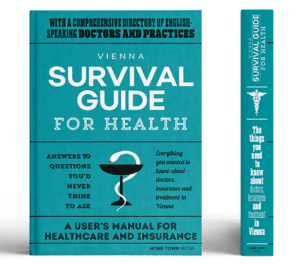What you need to know about the Austrian healthcare system as an expat

One of the wonderful things about moving to Austria is you will soon be eligible to get treatment from the superb Austrian healthcare system.
Rated as one of the best healthcare systems in the world for many years, the Austrian healthcare system will offer you some of the best, fastest and most affordable medical treatment you have ever received.
That fact goes for every kind of medical care — from if you just need an annual health checkup, are newly diagnosed with a medical problem, or need treatment for an existing problem to services like giving birth, having broken limbs set or being tested for a wide variety of ailments.
In other words, once you move to Austria, you will have access to the type of exceptional medical care you will probably never have experienced in many other countries you may have lived in.

Who is eligible for treatment in Austria’s public healthcare system?
Healthcare in Austria is classified as universal for anyone legally resident in Austria as well as anyone visiting from another EU country or EEA country and who is a European Health Insurance Card (EHIC) holder.
This also applies to anyone that is covered by a statutory social security scheme from Iceland, Liechtenstein, Norway, Switzerland, and now the UK since that country Brexited (until December, 2020).
If you begin working for an employer in Austria, you will automatically be enrolled in the Austrian public healthcare system almost immediately. Your health insurance tax will then be automatically deducted from your paycheck each month before you receive it. Your employer will also contribute a portion of the amount owed.
The amount paid into the system also covers your spouse and any dependents you may have living with you. It covers you for medical, accident and pension.
People who are unemployed, disabled, students or retired are also covered by Austria’s universal healthcare system.

If you are self-employed, like I am, you will be required to register yourself and then pay the tri-monthly health insurance/social security payment. The amount you will be expected to pay is based on your income.
(**If you are self-employed, be aware the amount you will pay for health insurance will be approximated for the first year — in other words, the amount you are asked to pay is based mainly on ‘guesswork’. The real amount you were supposed to pay will then be calculated after the first year, and you will be expected to pay the correct amount if there is any owed from the previous year. This will continue every year you pay for your health insurance.
When my Austrian health insurance was re-calculated after my first year living in the country, my tri-monthly health insurance payment more than doubled as my income had apparently not been appraised correctly to start with. That meant, for the next year I was paying a re-calculated more accurate amount for the current year, plus the amount I owed from the previous year.
This is why many Austrians recommend saving money towards your health insurance every year. That way you will not have a nasty shock when you are suddenly expected to pay more than double what you were calculating for the coming year).
Are your healthcare payments based on your age or medical history or risk factors?
No, unlike in a country like America for instance where healthcare insurance is based on age, medical history and risk factors, the Austrian healthcare system bases healthcare insurance tax is based on your income.
People who make lower amounts of money pay less, while those who make higher amounts pay more.

Getting your E-card
Once you have been accepted into the Austrian healthcare system, you will be issued an E-card. That card enables you to get healthcare at your doctor’s office or at a hospital. You just need to present it when you arrive for treatment.
I received my E-card in the mail about a week after I registered with the healthcare system as a self-employed person.
As I applied before October, 2019, my card does not include my photograph. Anyone who applies after that time will be expected to submit a photograph so that your identity can be validated when using it.
The E-card contains all of your health records and any medications you may have been prescribed.

Registering with a doctor in Austria
You will have to register with a doctor before you can get medical treatment, and this can be time-intensive depending on where in Austria you live.
This is due to some Austrian doctors not accepting patients who want treatment via the public healthcare system. In this case, you may have to contact a few doctors before you can find one currently accepting new patients and who has a partnership with the state’s public healthcare system.
Does Austria’s public healthcare system have long waits for treatment?
If you need to see a doctor, or need emergency treatment in a hospital, you will get treatment right away. This seems to be the case no matter where you live in Austria. Even in Vienna, the country’s capital city.
There can be waits up to several months, however, if you need surgery and it is not deemed life-threatening. This can be things like knee or hip replacements and cataract surgery.

Private healthcare in Austria
While the public healthcare system is excellent in Austria, some people do opt to also take out private healthcare insurance as this will usually shorten any waits they may have to endure.
This is still a very small percentage of the country, however, as overall Austrian healthcare is so good there is no reason to pay for additional insurance.
Anyone in Austria can also consult a private doctor or have private medical treatment if they deem it necessary. They will just be expected to pay the difference between what the public healthcare system would pay for the care and the cost of the private care.
Getting medication in Austria
Most medications and prescriptions are covered under the Austrian universal healthcare program. In other words, when you pick up medication at the pharmacy (know as the apotheke in Austria), you will pay just a couple of euros with the rest being covered by your health insurance.
Aphotheke in Austria are open from 8am to 6pm from Monday to Friday, and open until 12pm on Saturdays. Every area (and every district in Vienna) has at least one emergency pharmacist that is open 24 hours a day plus Sundays, so you can always get the medication you need when you need it.

The healthcare system in Vienna
If you are or will soon be living in Vienna, there is an excellent resource you can consult that has just about anything you could ever possibly want to know about the healthcare system in the nation’s capital.
That book was put together and published by Metropole, an excellent English-language magazine in Austria.
The book is called ‘Vienna — Survival Guide for Health — and covers every aspect of the medical care system from getting insurance to what is covered by your insurance, parental leave, maternity leave and what to do in the case of an emergency.
You can grab it at Metropole for under 20 euros. (Also keep an eye out, as they do occasionally offer the book at half price).
You can also learn more about the healthcare system in Vienna from the City of Vienna’s website.
